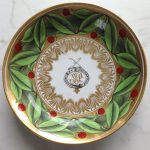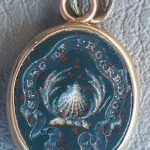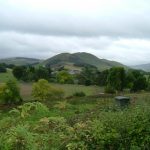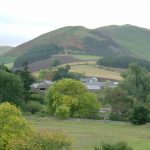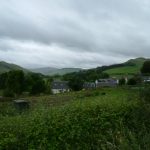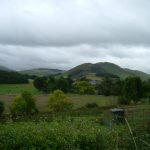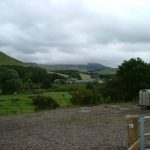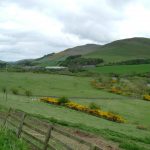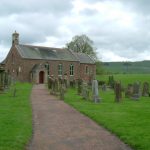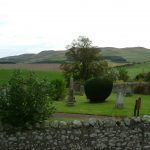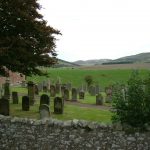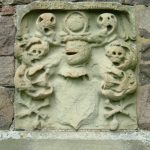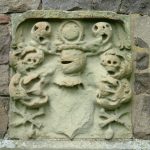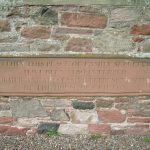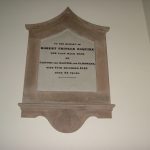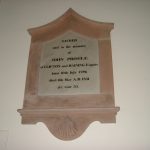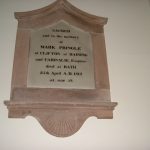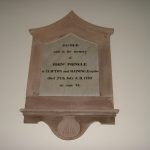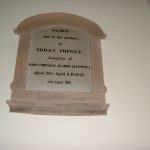Pringle of Clifton
The Pringle’s of Clifton, Haining, Alemore, Crichton and Fairnilee
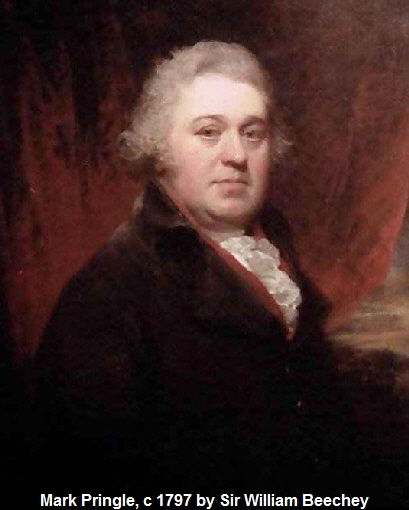
- Mark (1) Pringle in Sprouston, later of Easter Clifton. Servitor to the Earl of Roxburgh.
- Robert (1) Pringle of Easter Clifton and all of the barony of Clifton in 1681.
- Mark (2) Pringle of Clifton, died unmarried in 1685.
- Andrew Pringle of Clifton. Succeeded his nephew Mark. Died in 1710.
- Robert (2) Pringle of Clifton. Died in 1754.
- Robert (3) Pringle of Clifton. Died unmarried in 1778.
- John Pringle of Haining, later raised to the bench of the Court of Session as Lord Haining in 1729. MP for Selkirkshire in 1702. Died in 1754.
- Andrew Pringle, Lord Alemoor. Died in 1776. No issue.
- John Pringle of Haining and Clifton. Heir to his cousin Robert of Clifton in 1780. MP for Selkirkshire from 1765 till 1786. Died in 1792, unmarried.
- John Pringle, reputed natural son, a Writer in the Hon. East India Co.
- Mark Pringle
- John-Alexander-Gordon Pringle, died in Jamaica in 1853 aged 20.
- ? Pringle
- Alexander-Gordon Pringle, died at Clifton in 1831 aged 18.
- Mark Pringle
- John Pringle, reputed natural son, a Writer in the Hon. East India Co.
- Dr Robert Pringle. Lived in Jamaica, died in Philadelphia in 1775.
- Mark Pringle of Crichton, British Consul in Spain. Killed Walter Scott of Raeburn in a duel in 1707. Purchased Crichton in 1737. Died in London in 1761.
- John Pringle of Crichton. Forced to sell Crichton when his business failed. Died at Fairnilee in 1782.
- Mark Pringle of Fairnilee, Haining and Clifton. Admitted an Advocate in 1777. Heir to his maternal grandfather in Fairnilee in 1786 and succeeded his grand-uncle John to Clifton and Haining in 1792. MP for Selkirkshire from 1786 till 1802.
- John Pringle of Haining and Clifton. MP for Selkirk in 1819-20. Died unmarried in 1831.
- Robert Pringle of Fairnilee. Succeeded his brother to Haining and Clifton. MP for Selkirkshire. Died at Haining in 1842, unmarried.
- Margaret-Violet Douglas-Pringle of Haining and Fairnilee. Succeeded her brothers to Haining and Fairnilee, but not Clifton which went to an Elliot.
- Anna-Elizabeth Pringle-Pattison of Haining. Succeeded her mother.
- Mark Pringle of Fairnilee, Haining and Clifton. Admitted an Advocate in 1777. Heir to his maternal grandfather in Fairnilee in 1786 and succeeded his grand-uncle John to Clifton and Haining in 1792. MP for Selkirkshire from 1786 till 1802.
- Lieut.-Colonel Robert Pringle, R.E. Died in Grenada in 1793.
- Captain Andrew Pringle, Indian (Bengal) Army.
- Mark Pringle
- John Pringle of Crichton. Forced to sell Crichton when his business failed. Died at Fairnilee in 1782.
- Robert (2) Pringle of Clifton. Died in 1754.
- Robert (1) Pringle of Easter Clifton and all of the barony of Clifton in 1681.
- Andrew Seth Pringle-Pattison of Haining. Succeeded his aunt, Anna-Elizabeth Pringle-Pattison of Haining, upon taking her surname.
- Andrew Nimmo-Smith of Haining. The Last Laird of Haining. Grandson of Andrew Seth) – Died in 2009, leaving the Haining to ‘the People of Selkirk’.
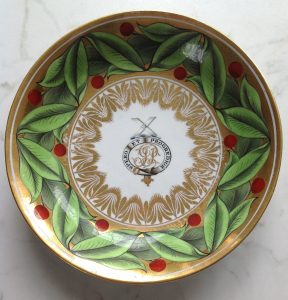
The Scottish Nation, by William Anderson, published 1863. – The Pringles of Clifton were also an old family. In 1760, Robert Pringle of Clifton made an entail of his estates, and died, unmarried, in 1780. He was succeeded by his cousin, John Pringle of Haining, second son of his uncle, John Pringle, who was the second son of Andrew Pringle of Clifton (deceased in 1702) and his wife, Violet Rutherfurd, daughter of John Rutherfurd of Edgerstone. This John Pringle passed advocate 18th June 1698, and in 1702 purchased the estate of Haining, parish of Selkirk. On 1st July 1729, he was admitted a lord of session, when he took the title of Lord Haining. His lordship died 19th August 1754. With three daughters he had three sons, namely, 1. Andrew, also a lord of session, under the title of Lord Alemoor; 2. John Pringle of Haining; and 3. Robert, a doctor of medicine.
The eldest son, Andrew, did not take up his father’s succession to Haining, as his affairs were embarrassed, and his next brother, John, who had made a handsome fortune as a merchant in Madeira, purchased it on his father’s death, and cleared off all the incumbrances upon it. Admitted an advocate in 1740, Andrew Pringle was very eminent at the bar, being greatly distinguished for his scholarship and eloquence. In 1750 he was appointed sheriff of Wigtonshire, and in the following year sheriff of Selkirkshire. In 1755 he was appointed solicitor-general for Scotland, and 14th June 1759 ho was raised to the bench, as Lord Alemoor, from a property which he had acquired in Selkirkshire. At the same time ho was appointed a lord of justiciary. He died at his villa of Hawkhill, near Edinburgh, 14th January 1776, unmarried, and was succeeded in all his property by his next brother, John Pringle of Haining. The latter for a long time represented Selkirkshire in parliament. On the death of his cousin, Robert Pringle of Clifton, in 1780, he was served heir of provision to him under his entail, and thereafter assumed the designation of Pringle of Clifton, with the arms of the elder branch, undifferenced. He died in 1792, unmarried, and was succeeded by his cousin and grand-nephew, Mark Pringle of Fairnalie, grandson of Mark Pringle of Crichton, third and youngest son of Andrew Pringle of Clifton, by Violet Rutherfurd of Edgerstone, above mentioned. On 2nd October 1707, the day of the head court at Selkirk, Mark Pringle had an after-dinner quarrel with William Scott of Raeburn, then only about twenty-one years of age, the great-granduncle of Sir Walter Scott, and next morning they fought with swords, as was the fashion of the time, says the latter, in a field near Selkirk, when Raeburn was killed. The field “was called, from the catastrophe, the Raeburn Meadow Spot. Pringle fled from Scotland to Spain, and was long a captive and slave in Barbary.” Having at length made a considerable fortune as a merchant, he returned to Scotland in 1738, and purchased the estate of Crichton in Mid Lothian. He died in 1751. His eldest son, John Pringle of Crichton, who had married Ann, eldest daughter of Robert Rutherfurd of Fairnalie, sister of Mrs. Cockburn, authoress of ‘ The Flowers of the Forest,’ continued to be engaged extensively in commercial pursuits, till the house with which he was connected became bankrupt. He was then forced to part with his lands, and his father-in-law, Mr. Rutherfurd, being involved along with him, had to sell some of his estates. His son, Mark Pringle, advocate, first designed of Fairnalie, on the death of his granduncle, John Pringle, became possessed of the estates of Haining and Clifton, the former as heir of line, through his grandmother, Ann Pringle, the wife of Robert Rutherfurd of Fairnalie, and the latter as heir male, through the entail executed by Robert Pringle of Clifton, At the general election of 1790, Mr. Pringle of Clifton was elected M.P. for Selkirkshire, and he sat for that county till the dissolution in 1802. He died in 1812. He had, with one daughter, two sons, John, and Robert, of Fairnalie.
The elder son, John Pringle of Clifton, was a minor on succeeding to the estates. He studied at Christchurch college, Oxford, and at the peace of 1815, entered the army as a cornet in the 7th hussars, and served in the army of occupation in France. In 1819, when the general reduction took place, he was obliged to go on half-pay. In 1820, he was elected M.P. for the Selkirk burghs, on the Whig interest. In 1831 he was killed by being thrown out of his open carriage near his own house of Haining. Dying unmarried, he was succeeded by his brother, Robert Pringle of Fairnalie, afterwards of Clifton, also an officer in the 7th hussars. In the first parliament after the passing of the Reform Bill he sat as member for Selkirkshire. He died at Haining in 1841, when the estate of Clifton passed, under the powers of the entail, to Robert Elliot of Harwood, whose father was the eldest son of the eldest sister of the entailer, Robert Pringle of Clifton, which made him heir of line of that family. Haining and the other estates of Robert Pringle descended to his only sister, Margaret Violet Pringle. This lady married Archibald Douglas, Esq. of Adderston, whose family are cadets of the house of Cavers: issue, one daughter. In compliance with her brother’s settlement, she and her husband assumed the name and designation of Pringle of Haining in addition to that of Douglas.
The Pringles of Clifton are buried in Morebattle kirk.

